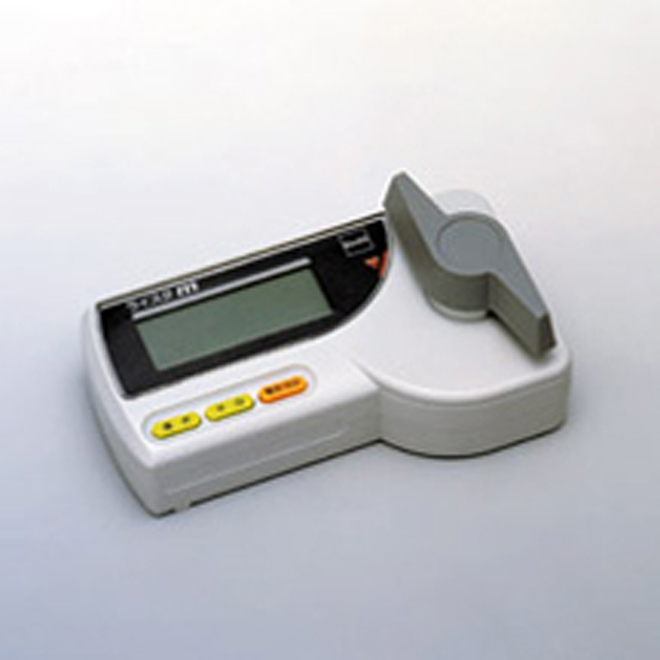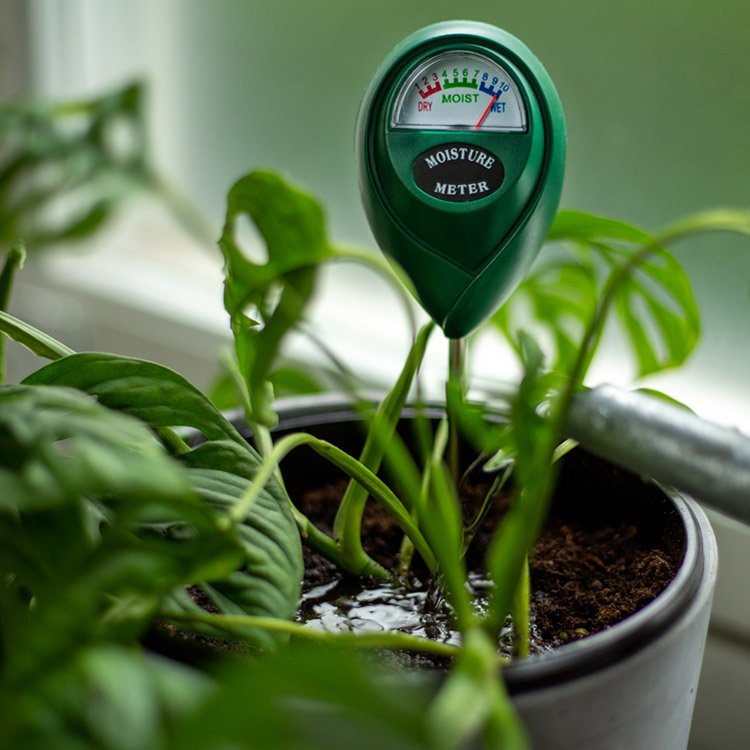The Ultimate Guide to Selecting the Right Moisture Meter for Your Requirements
The Ultimate Guide to Selecting the Right Moisture Meter for Your Requirements
Blog Article
The Ultimate Guide to Moisture Meters: A Comprehensive Introduction and How They Can Save You Money
In the world of building upkeep, construction, and various sectors, the value of precisely gauging wetness degrees can not be overemphasized. Moisture meters act as vital devices in finding and checking moisture content in products, assisting in preventing costly problems and making sure the high quality of products. Recognizing the subtleties of different sorts of dampness meters, their applications, and the potential cost-saving benefits they offer can be a game-changer for professionals and organizations alike. Uncovering just how these tools can not only simplify processes but additionally add to economic cost savings is a trip worth starting.
Sorts Of Moisture Meters
Different sorts of wetness meters are readily available for different applications in different markets. One typical kind is the pin-type wetness meter, which measures the electric resistance in between two pins placed right into a material. This type appropriates for timber, drywall, and other building materials. Pinless wetness meters, on the various other hand, usage electromagnetic sensor plates to check a bigger location without creating damages to the material's surface. These meters are suitable for swiftly assessing dampness degrees in huge areas such as walls and floors.
Additionally, there are likewise specialized wetness meters created for particular products like dirt, hay, or grain. These meters provide precise moisture analyses customized to the unique buildings of the product being tested. Infrared moisture meters measure the thermal properties of a material to identify its moisture content non-invasively, making them helpful for applications where pin or pinless meters may not appropriate. Recognizing the various kinds of wetness meters offered can assist markets pick one of the most ideal tool for their details moisture measurement requirements.

Advantages of Utilizing Moisture Meters

Moreover, using moisture meters can lead to enhanced energy effectiveness. In agricultural setups, wetness meters play a crucial role in maximizing plant yields by enabling farmers to monitor dirt dampness degrees and make informed watering choices.
Just How to Select the Right Moisture Meter
Picking the suitable dampness meter involves taking into consideration crucial elements such as material compatibility, measurement range, and calibration precision. When selecting a dampness meter, it's necessary to make sure that the meter is appropriate for the certain product you will certainly be testing. Various materials have differing electrical residential properties that can influence dampness readings, so picking a meter made for your product is important for accurate results. In addition, consider the measurement variety of the moisture meter. Ensure that the meter can identify wetness levels within the array needed for your applications. Calibration accuracy is one more crucial variable to remember (Moisture Meter). Decide for a dampness meter with reputable calibration to guarantee exact and constant readings. Some meters Source might require regular calibration adjustments, so understanding the calibration process is crucial. By very carefully assessing these elements, you can choose a moisture meter that meets your requirements and gives precise moisture dimensions for your tasks.
Proper Techniques for Moisture Meter Use
To make sure exact dampness analyses and maximize the effectiveness of a dampness meter, using appropriate methods is crucial. When utilizing a pin-type wetness meter, put the pins or probes right into the product being tested until they make full get in touch with. Guarantee the pins are vertical to the surface area to get one of the most accurate analysis. For pinless wetness meters, hold the tool level versus the product and move it slowly to cover the whole area for a typical analysis. It's vital to calibrate the dampness meter according to the material being evaluated to enhance accuracy. Take several analyses throughout the surface area and typical them out for an extra trusted outcome. Additionally, make sure that the material being tested is adjusted to the environment to stop skewed readings. Regular maintenance of the dampness meter, such as cleaning the pins or sensor, is likewise essential to ensure consistent and exact readings. By following these proper techniques, individuals can count on their moisture meter to give trustworthy wetness levels, aiding in avoiding expensive damage or ensuring top quality in different applications.

Cost Cost Savings Via Moisture Meter Applications
Exactly how can the calculated utilization of dampness meters lead to considerable price financial savings across different industries? In the agriculture industry, wetness meters help in establishing the optimal time for gathering plants, preventing over-drying or excess wetness that can impact the final item's quality.

Additionally, in the food processing market, moisture meters are necessary for keeping an eye on product top quality and making sure conformity with security regulations. By precisely gauging moisture material in foodstuff, makers can avoid spoilage, keep quality, and lower waste, causing considerable cost savings. In general, the tactical application of moisture meters is a useful investment that can lead to substantial price reductions and enhanced effectiveness throughout various industries.
Final Thought
In verdict, moisture meters are beneficial click this site tools for gauging and discovering dampness degrees in different products. By making use of the ideal moisture meter and complying with proper methods, users can successfully avoid pricey damages triggered by excess dampness. Purchasing a quality moisture meter can lead to considerable price savings in the future by recognizing potential concerns beforehand and allowing punctual removal. Inevitably, moisture meters are vital instruments for maintaining the stability and long life of products and structures.
Wetness meters serve as essential tools in detecting and checking moisture content in materials, assisting in avoiding pricey problems and guaranteeing the top quality of items. Infrared dampness meters determine the thermal properties of a product to establish its moisture material non-invasively, making them helpful for applications where pin or pinless meters may not be appropriate.Wetness meters offer very useful advantages in properly keeping an eye on and examining wetness degrees in varied materials and atmospheres. In agricultural settings, moisture meters play an essential duty in maximizing plant returns by making it possible for farmers to keep track of dirt wetness degrees and make educated irrigation decisions.In verdict, moisture meters are useful devices for measuring and identifying dampness degrees in various products.
Report this page